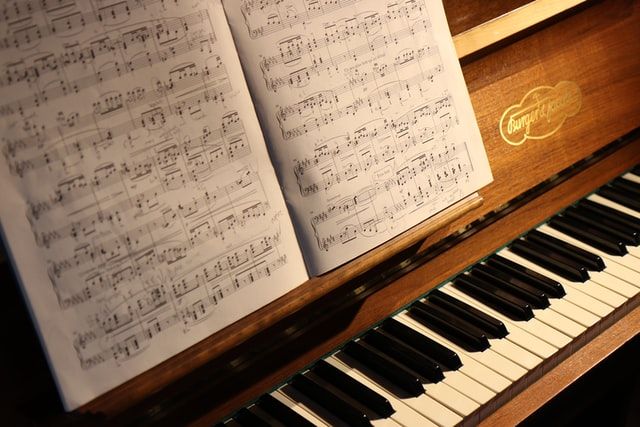Music Selections for a Traditional Funeral Service
Discover meaningful music selections for a traditional funeral service. Explore how hymns, classical pieces, and instrumentals can create a heartfelt tribute.

Music plays an essential role in creating a meaningful and emotional atmosphere during a funeral service. The right selection can provide comfort to grieving families and reflect the life and values of the person being honored. Choosing music for a traditional funeral service can be a sensitive task, as it needs to strike the right balance between solemnity, spirituality, and remembrance. Whether you’re planning a service at funeral homes Kaysville, UT, or another location, this guide will help you select appropriate music for the occasion.
Choosing Hymns for Religious Services
For many families, religious hymns are a central part of a traditional funeral service. These hymns often carry deep spiritual significance and can provide comfort to those mourning the loss of a loved one. Some of the most common hymns for funerals include “Amazing Grace,” “The Old Rugged Cross,” and “How Great Thou Art.” These timeless pieces speak to faith, hope, and eternal life, offering solace during difficult times.
When choosing hymns, it’s important to consider the religious denomination of the service, as different faith traditions may have specific songs that are commonly sung during funerals. Consulting with a clergy member or religious leader can help you select the most appropriate hymns for the service.
Classical Music for Elegance and Comfort
Classical music has long been a staple of traditional funeral services due to its timeless and soothing qualities. Pieces by composers like Johann Sebastian Bach, Ludwig van Beethoven, and Wolfgang Amadeus Mozart evoke a sense of peace and reflection, making them suitable choices for a dignified ceremony.
Some popular classical selections include Bach’s “Air on the G String,” Beethoven’s “Moonlight Sonata,” and Mozart’s “Ave Verum Corpus.” These pieces can be played as background music or during key moments of the service, such as the processional, recessional, or during moments of reflection. Classical music adds a level of grace and serenity that complements the solemnity of a traditional funeral.
Instrumental Music for Quiet Reflection
Instrumental music can create a peaceful atmosphere, allowing guests to reflect on the life of the deceased. Soft piano or string quartets are ideal choices for this purpose, providing a gentle backdrop to the service without overpowering the moment. Instrumental pieces are often used during the prelude, when guests are arriving, or during moments of silence or prayer.
Popular instrumental selections might include “Clair de Lune” by Claude Debussy, “Canon in D” by Johann Pachelbel, or “Meditation” from Thaïs by Jules Massenet. These pieces offer a balance of emotional depth and tranquility, allowing attendees to find peace amidst their grief.
Contemporary Christian Songs
For those planning a traditional funeral with a contemporary twist, modern Christian songs can offer a heartfelt tribute to a loved one. Songs like “I Can Only Imagine” by MercyMe, “On Eagle’s Wings” by Michael Joncas, or “You Raise Me Up” by Josh Groban provide messages of faith, comfort, and hope, which can resonate deeply with the grieving family and attendees.
Incorporating contemporary Christian music can create a bridge between traditional hymns and more modern expressions of faith, offering a meaningful way to honor the deceased while connecting with the present-day sentiments of the family.
Family-Requested Songs and Personalization
In some cases, families may wish to include songs that were personally meaningful to the deceased. Whether it’s a favorite hymn, a classical piece they loved, or a special song that holds family significance, adding a personal touch to the music selections can create a more intimate and personalized service.
It’s important to balance these personal selections with the overall tone of the service to ensure that the music complements the solemnity and respectfulness of the event. If you’re working with a funeral director at funeral homes, they can help guide you through choosing the right songs that honor the person while maintaining the traditional atmosphere.
Timing and Placement of Music
The placement of music within the service is just as important as the selection of the songs themselves. Funeral services often include a prelude, processional, recessional, and moments of reflection, each offering an opportunity to incorporate music in a meaningful way.
The prelude can set the tone as guests enter the venue, while the processional music signals the start of the service. During moments of reflection or prayer, instrumental or soft vocal music can enhance the emotional impact of these moments. The recessional music, played as attendees leave, often provides a sense of closure or uplift as the service concludes.
Meaningful Music for a Traditional Funeral
Selecting music for a traditional funeral service requires thoughtful consideration of the atmosphere you want to create and the preferences of the family and deceased. From hymns and classical pieces to instrumental and contemporary Christian songs, the right music can offer comfort, evoke reflection, and honor the life being remembered. If you’re seeking guidance for music selection at funeral homes Kaysville, UT, contact Lindquist Mortuaries and Cemeteries to
learn more about our services and how we can help create a meaningful tribute.











